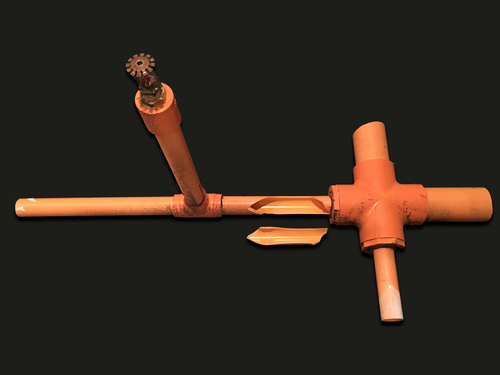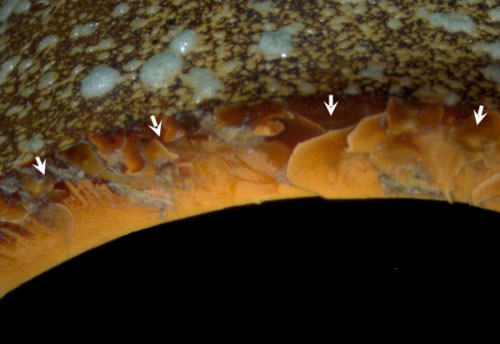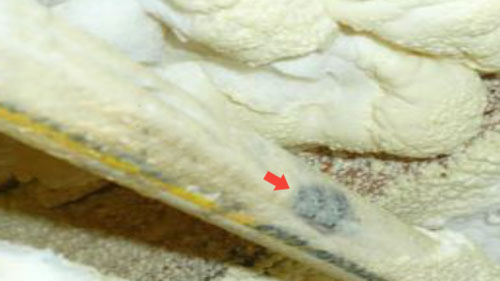Life-saving systems can cause more harm than good.
FIRST TO DOCUMENT & ADVISE OF INCOMPATIBILITY
With over a decade of experience performing failure analysis investigations on orange plastic (CPVC) fire sprinkler piping systems. We have found that most failures are caused by exposure to incompatible chemicals, on the inside (e.g., Allied ABF) and outside (e.g., fire caulk, spray foam, etc.).
- We were the first (2007) to advise of incompatibility between antimicrobial lined steel pipe and CPVC.
- We have performed failure analysis investigations on CPVC pipe samples removed from over 50 buildings in the past 12 years.
We investigate all CPVC Fire Sprinkler Piping including: Tyco, Viking, Harvel (Blazemaster), Spears (FlameGuard), and Victaulic (FireLock).
A sub-section of a failed CPVC fire sprinkler pipe system.
Thousands of U.S. buildings USE CPVC piping
Class action suits have been filed alleging national cover-ups of defects, exposing condominium and townhome owners to risk of personal injury as well as loss of life.*
- CPVC is unforgiving and susceptible to failure if not properly installed by expertly trained professionals.
- We offer chemical compatibility testing of spray foam insulations & fire caulking to deduce if they contain incompatible chemicals.
- We’ve developed non-destructive testing technology to evaluate fire sprinkler system piping system to determine potential risks.
- We also offer custom CPVC remediation plans.
Unintentional overspray of building & insulating materials leads to failures.
Spray Foam INSULATION AND the SPF Alliance
Spray foam is a preferred insulation material because it both seals against air penetration and has a high R-value. However, most SPF contains fire retardant chemicals, called “esters“, and amine catalysts that are highly incompatible with CPVC pipes and fittings.
Many failures of CPVC have resulted from exposure to spray foam.
In 2008, as an attempt to rebound dropping sales, SPF manufactures formed the SPF Alliance (SPFA) to prove SPF and CPVC piping were compatible. For all their merits, the SPFA is not an expertly trained CPVC forensic engineer, but rather a business collective. The SPFA stance on the matter of SPF-related CPVC failures is subjectively stated:
“…when (SPF’s) are not properly applied there is the potential for excess heat that can lead to ballooning of the pipe and a subsequent failure.”
Objectively, the tests were not properly conducted, the results were not published in any scientific journal; instead the SPFA published a white paper synopsis of their findings. Meanwhile lawsuits regarding failures of CPVC pipes and fitting exposed to spray foam continue.
A high-res shot of SPF negatively impacting orange CPVC piping.
CPVC piping with water damage from SPF application.
CPVC REMEDIATION CONSULTING
Discover Problems Before They Are Million Dollar Failures
We use cutting edge technology to find potential problems and develop custom remediation plans based on applied statistical analysis.
On-Site Inspections
We perform onsite inspections of the CPVC piping systems as well as offer non-destructive CPVC piping evaluations.
Ultrasound TECH.
We utilize state-of-the-art ultrasound technology to inspect the inside and outside of each piping system.
Statistical Analysis
We pair years of cross-field engineering expertise with statistical analysis to develop various remediation plans.
Remediation Plans
Used to make intelligent decisions on the best and most efficient remediation options to restore at-risk systems.
The Importance of CPVC Fire Sprinkler Piping Inspection
Fire codes in a majority of municipalities require fire sprinkler systems in most commercial buildings and many residential buildings. Chlorinated (poly) vinyl chloride (CPVC) piping systems are easier and lower cost to install than metal piping systems, making it generally the piping of choice for fire suppression systems.
However, every year, leaks and failures in CPVC piping systems cause extensive property damage, insurance payouts, and subrogation costs totaling in millions of dollars.




